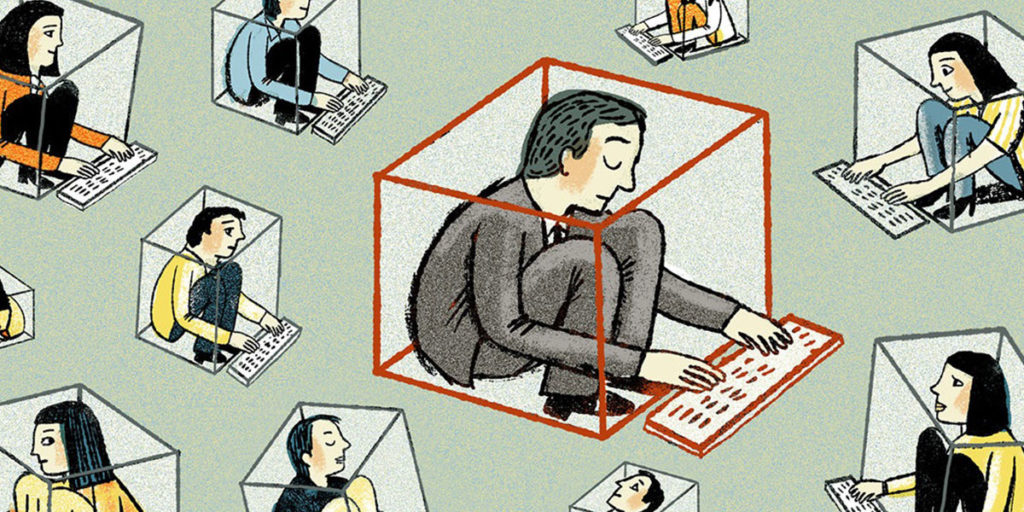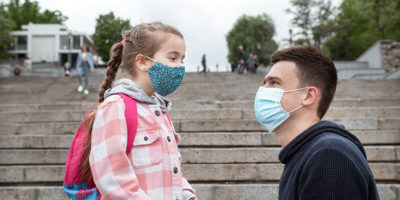Mental Health Effects during Isolation
Posted: Apr. 13, 2020 • By Kevin Kohler

As the crisis continues mental health issues related to isolation and working from home are an increasing concern. Stress and anxiety levels may increase due to:
- Economic uncertainty from lost wages
- Providing care for children and elderly family members, often while at work or working from home
- Providing care for those who are suffering from mental or physiological health issues related COVID-19
- Higher work loads related to fewer employees, working from home, less support and difficult communication channels
- Health worries related to family members providing essential services (health workers, infrastructure, etc.)
- Individuals self-isolating and general social isolation
- Being stigmatized for belonging to a group, ethnicity or nationality associated with COVID-19
- Combinations of the above, often occurring under one roof.
There are a number of resources that address these issues and provide guidance for employers and employees working under new and difficult conditions such as the

In order to take care of others we must take care of ourselves. The Canadian Mental Health Agency (CMHA) recommends the following:
- Be aware of your normal anxiety, do not try to suppress it but try to keep things in perspective.
- Take care of yourself, use social supports, get enough sleep, eat healthily, get exercise outdoors and try to pursue the activities that you enjoy.
- Set limits on news consumption and use only reputable sources.
- Follow the precautions recommended by Health Canada and other credible health agencies.
- Seek help if your symptoms of anxiety are causing you significant distress or are interfering with your ability to function normally.
Health workers and health professionals are an essential service and are available to provide counseling, treatment and assistance. Contact your physician, your health services agency, the local CMHA branch or your employee assistance program administrator.
CMHA
- If you or someone you know is in crisis you can call the CMHA: 1-888-456-4566
- CMHA Crisis Services
- Information on mental health and COVID-19
Protecting the most vulnerable
Those who are most vulnerable are of special concern during this crisis. Those persons include:
- Children and youth at risk of abuse
- Those at risk of domestic violence
- Children in care
- The elderly
- The homeless
As Global News reports (March 29, 2020):
Across the country, support centres and shelters are grappling with the same heartbreaking problem: how to help someone be safe when they have been told to isolate at home but their home isn’t safe… Domestic abuse is about power and control, something an abuser has more of when their victim is forced to isolate at home – which… means an increase in “opportunities for physical, sexual and emotional abuse.”

The Canadian federal government has released funds for the vulnerable through the following new or existing programs:
- Indigenous Community Support fund to support immediate needs in First Nations, Inuit and Metis nation communities
- The Reaching Home Initiative: support for the homeless to accommodate COVID-19 requirements
- Support for women’s shelters and sexual assault centres to help manage and prevent outbreaks
- Support for seniors: Delivery of items and personal outreach through United Way
There are a number of local and provincial initiatives to assist those who are most vulnerable. This is an important time to remind our employees to reach out and seek assistance for himself or herself or anyone else who is in danger. Intervention by calling the police or social services is often the safest alternative in these circumstances.
We are being encouraged to be good neighbours and to be aware of potentially harmful situations in our neighbourhood. We can check with our neighbours from a safe distance to make sure that all is well and be mindful of any non-verbal cues we receive. We can look out for homeless and troubled individuals in need of assistance, we can call our elderly neighbours and we can offer help to those who may not be able to help themselves.
Towards a better tomorrow
In many ways the COVID-19 crisis is bringing out the best in people and we can be inspired by the uplifting accounts of those who are helping others. We should make a point of remembering the remarkable sacrifices being made each day by those who are providing essential services, often under dangerous conditions. Some experts are saying that we will emerge from this crisis as a much more “caring society”, more aware of those who are vulnerable, and those who need our help. These are uplifting positive thoughts to hold on to in these troubled times.
Related Articles

COVID-19 Fall 2020 Return to School
COVID-19 and Society – Where are We? COVID-19 is still a very new disease whose epidemiology is not all that […]
Read Article
Confined Spaces
Confined spaces can be lethal A tragic example of confined space hazards is the Sullivan Mine incident where four people […]
Read Article